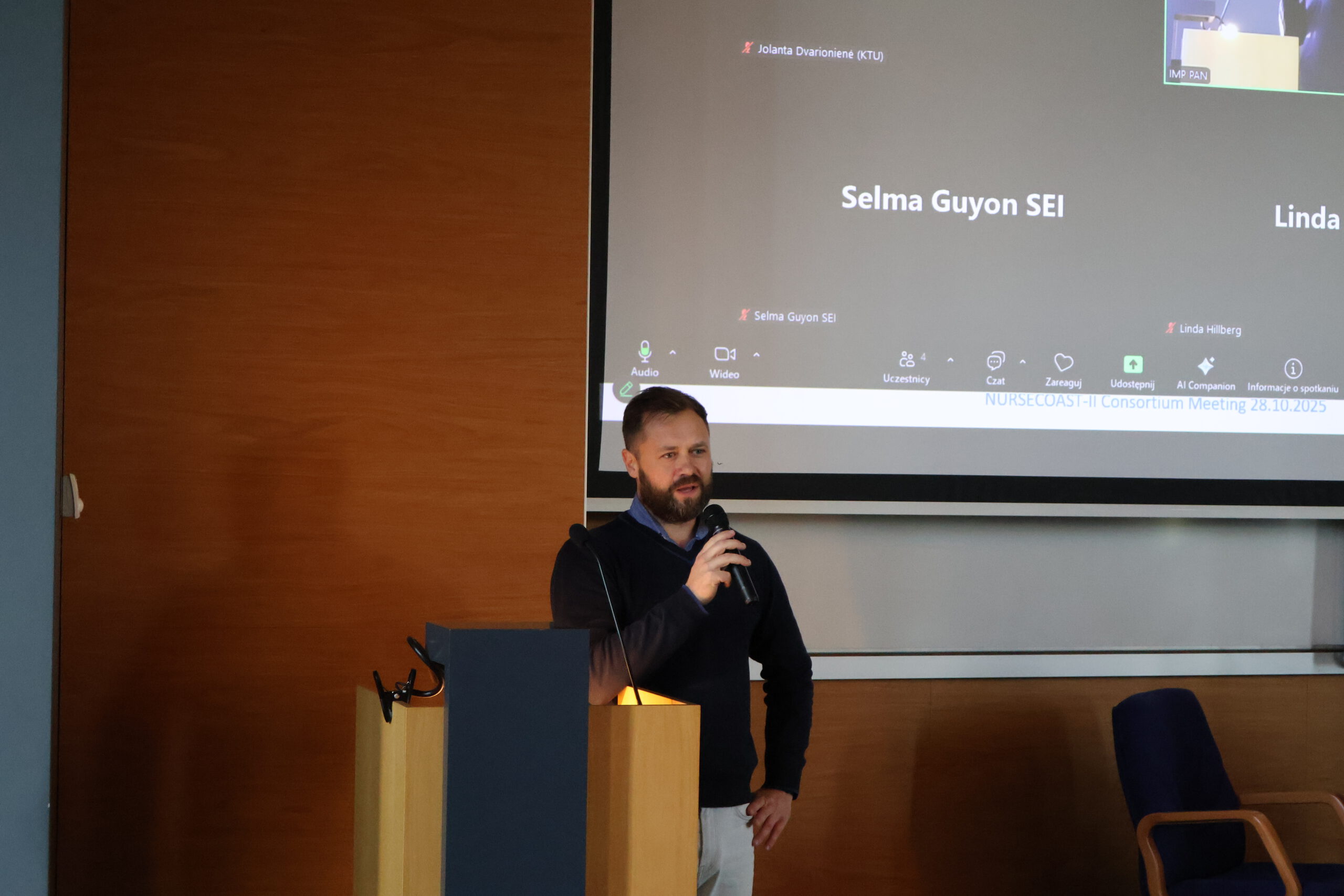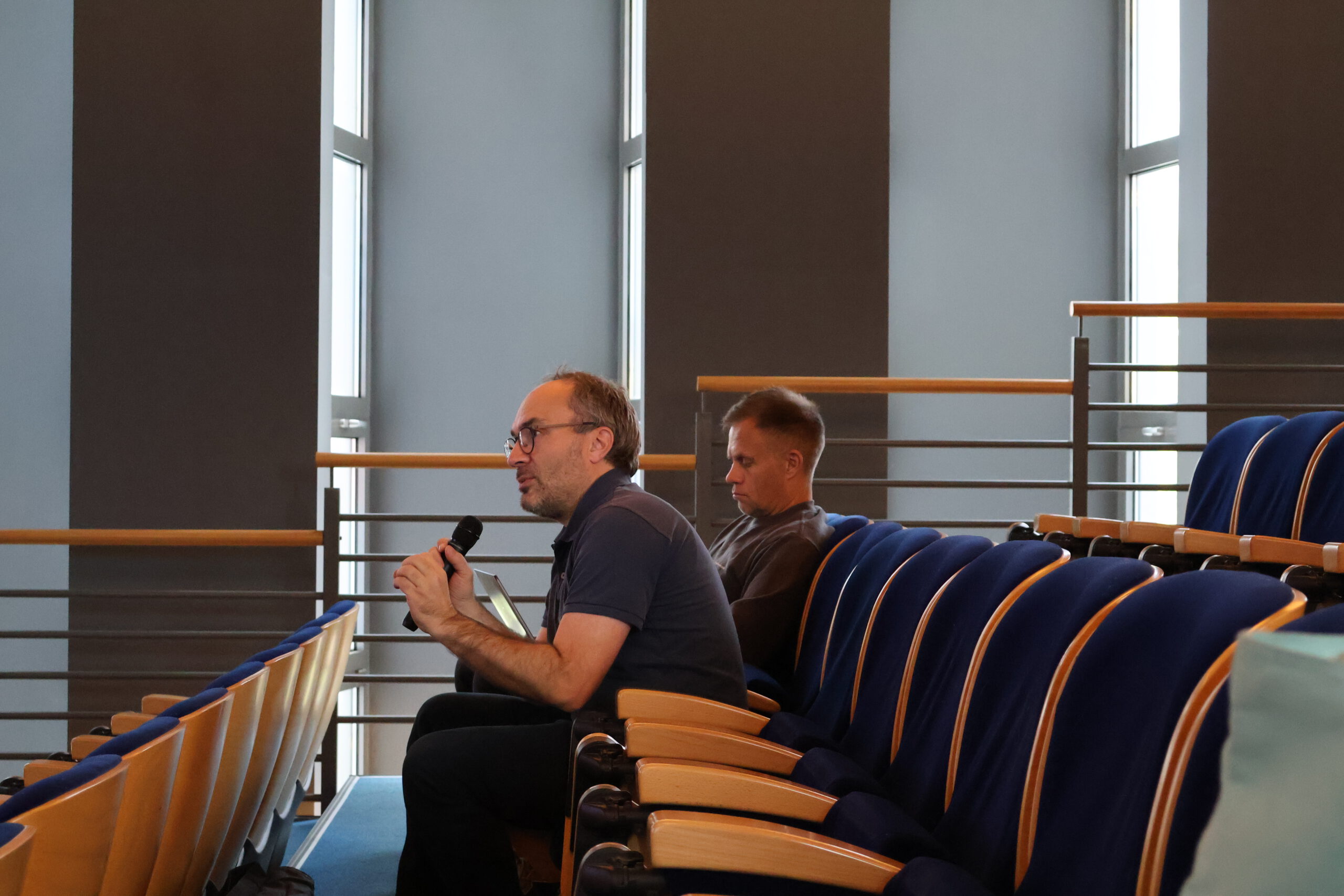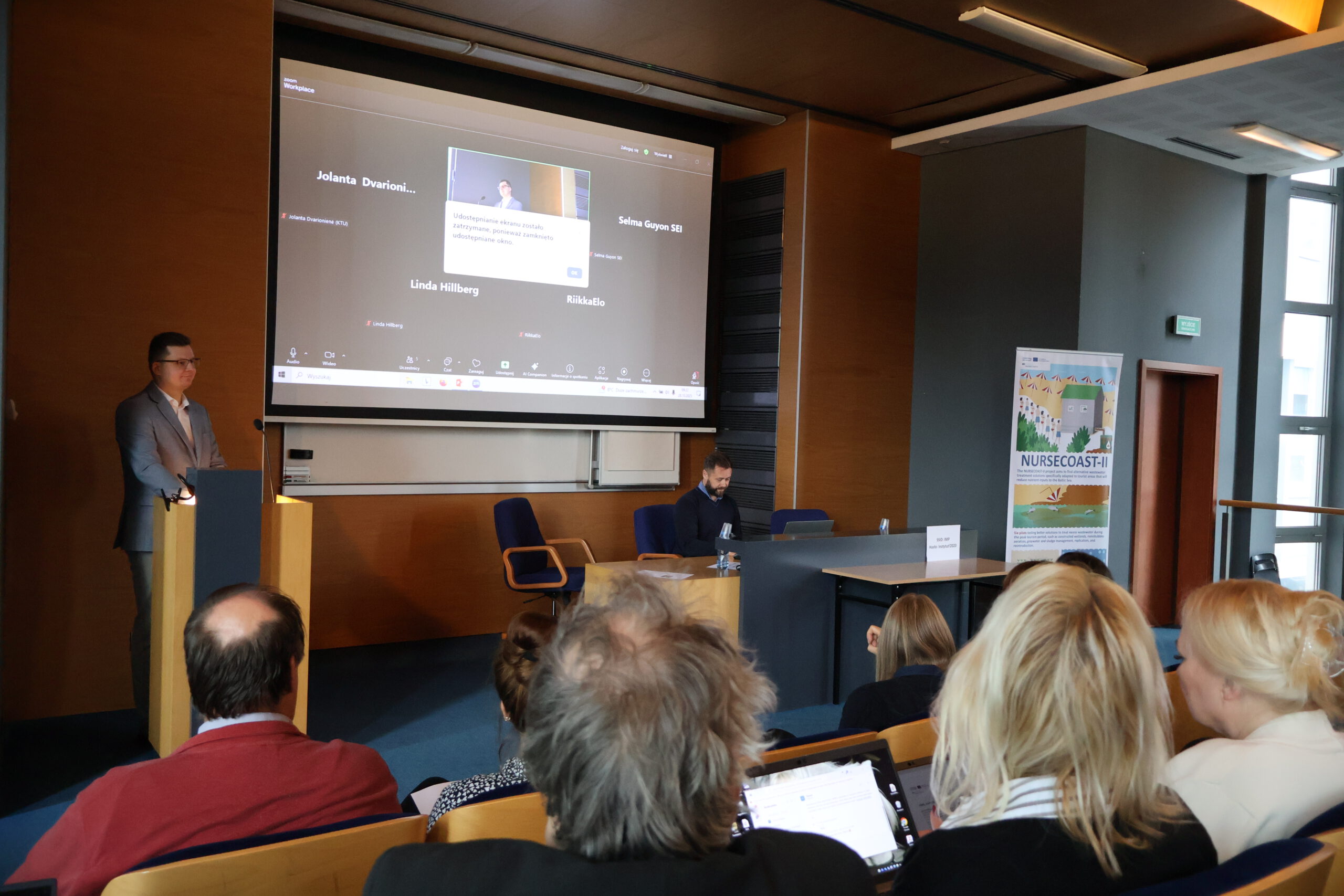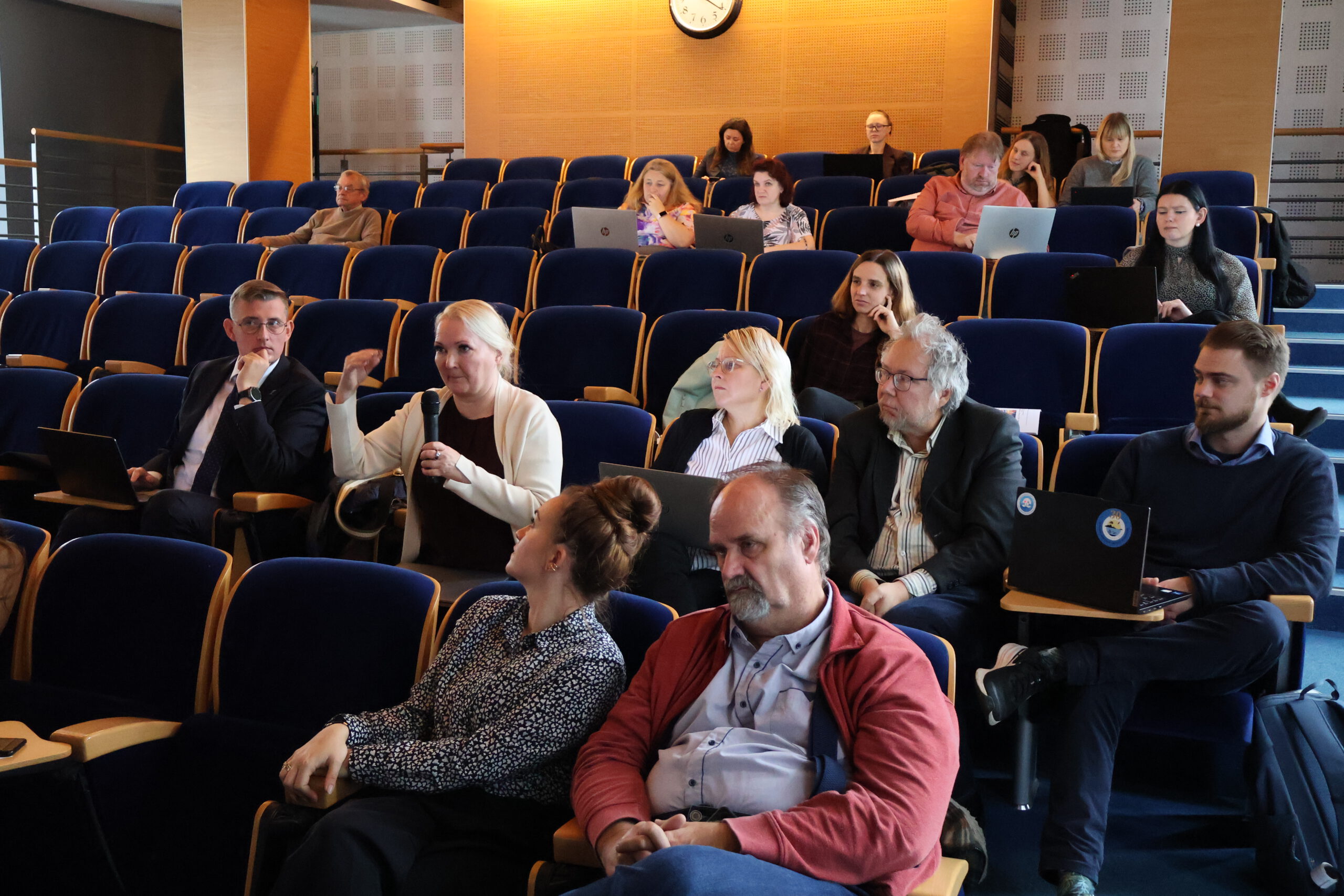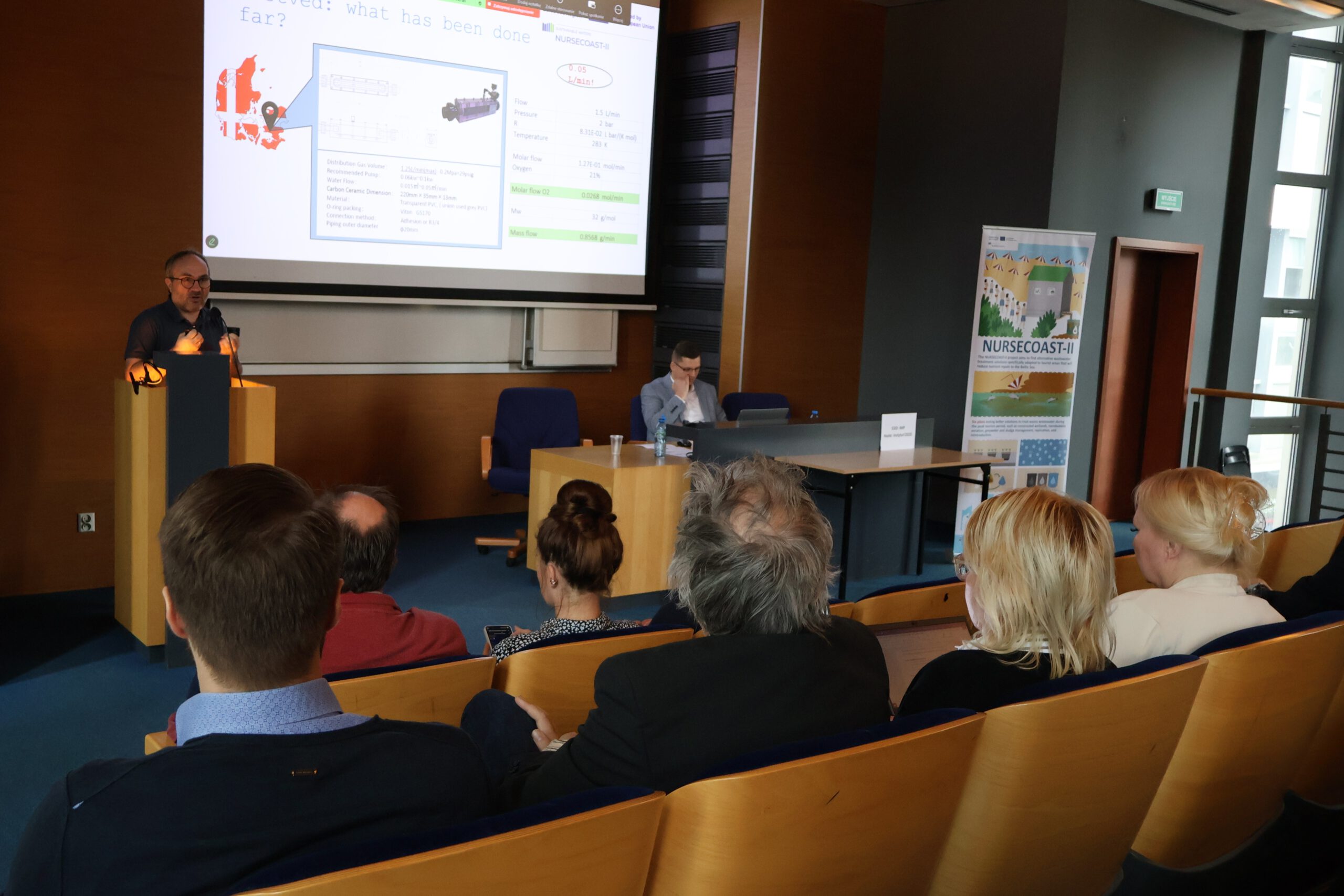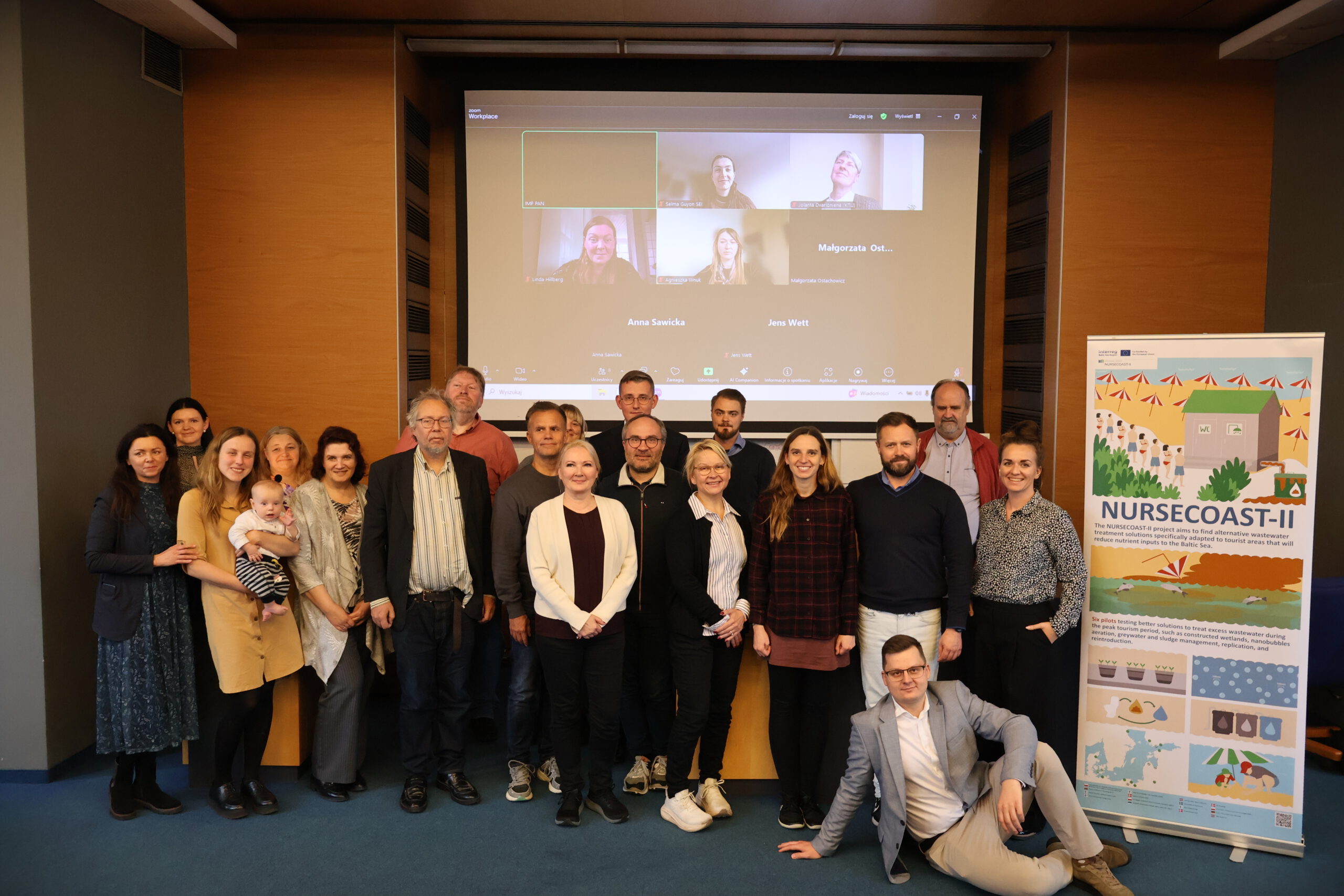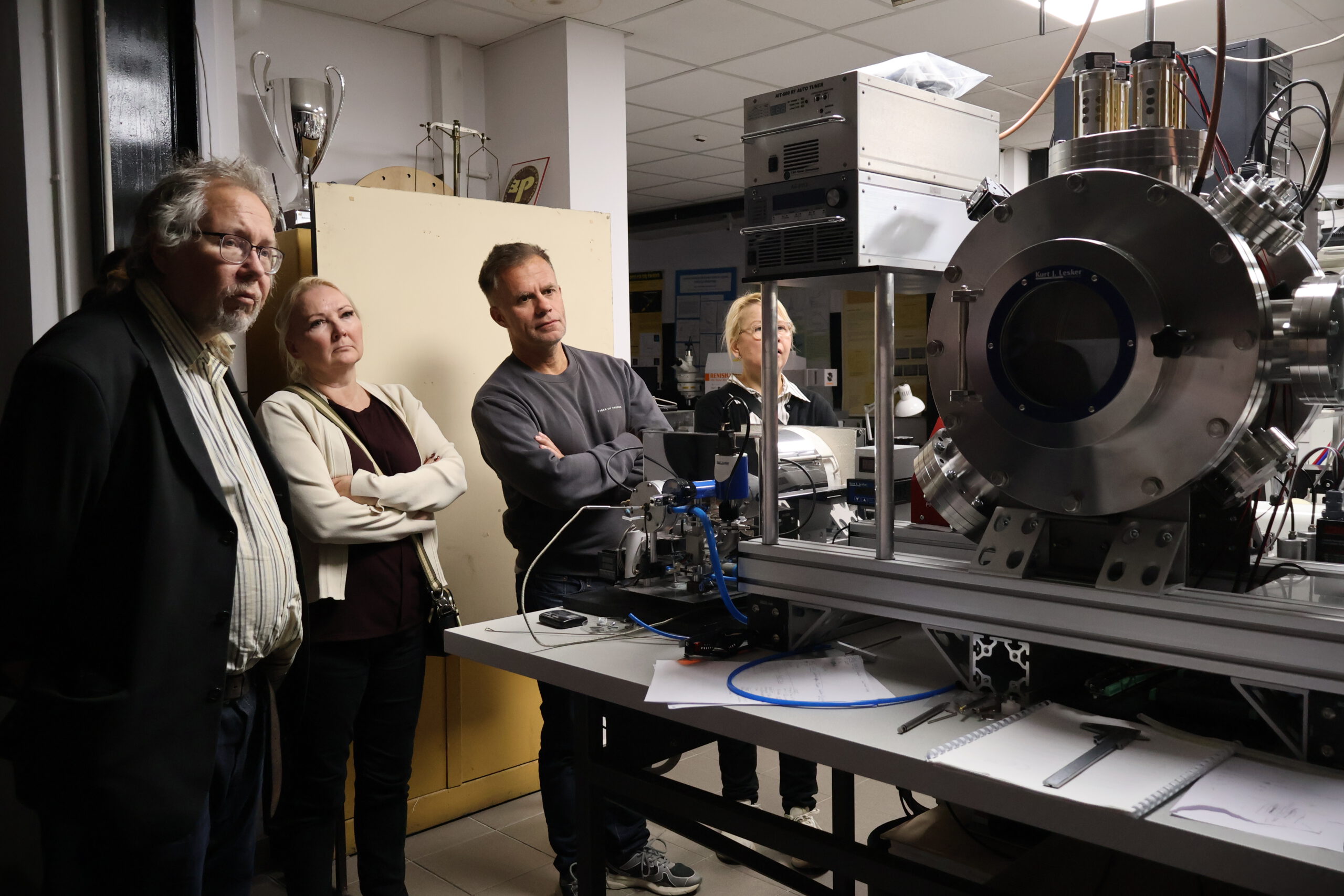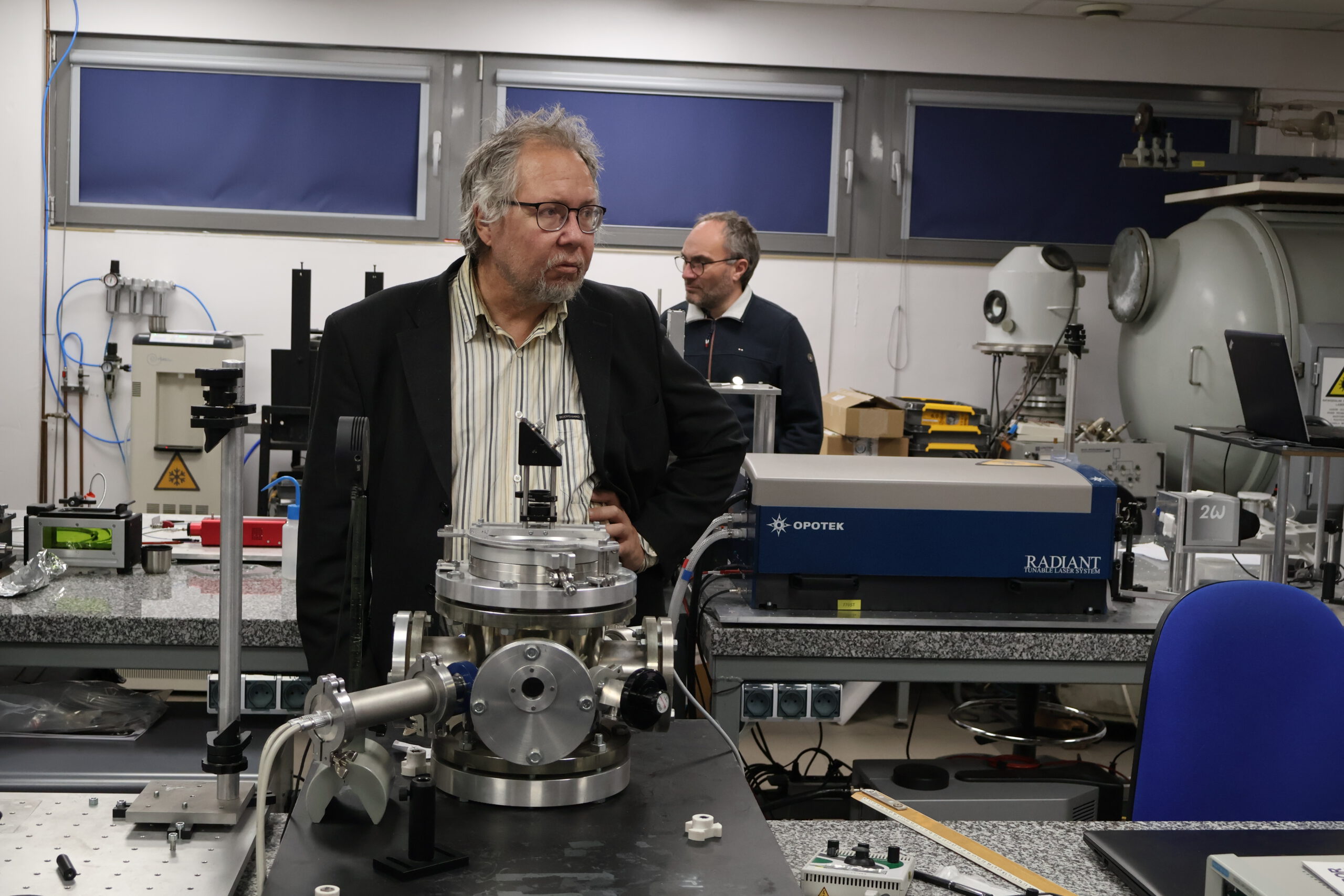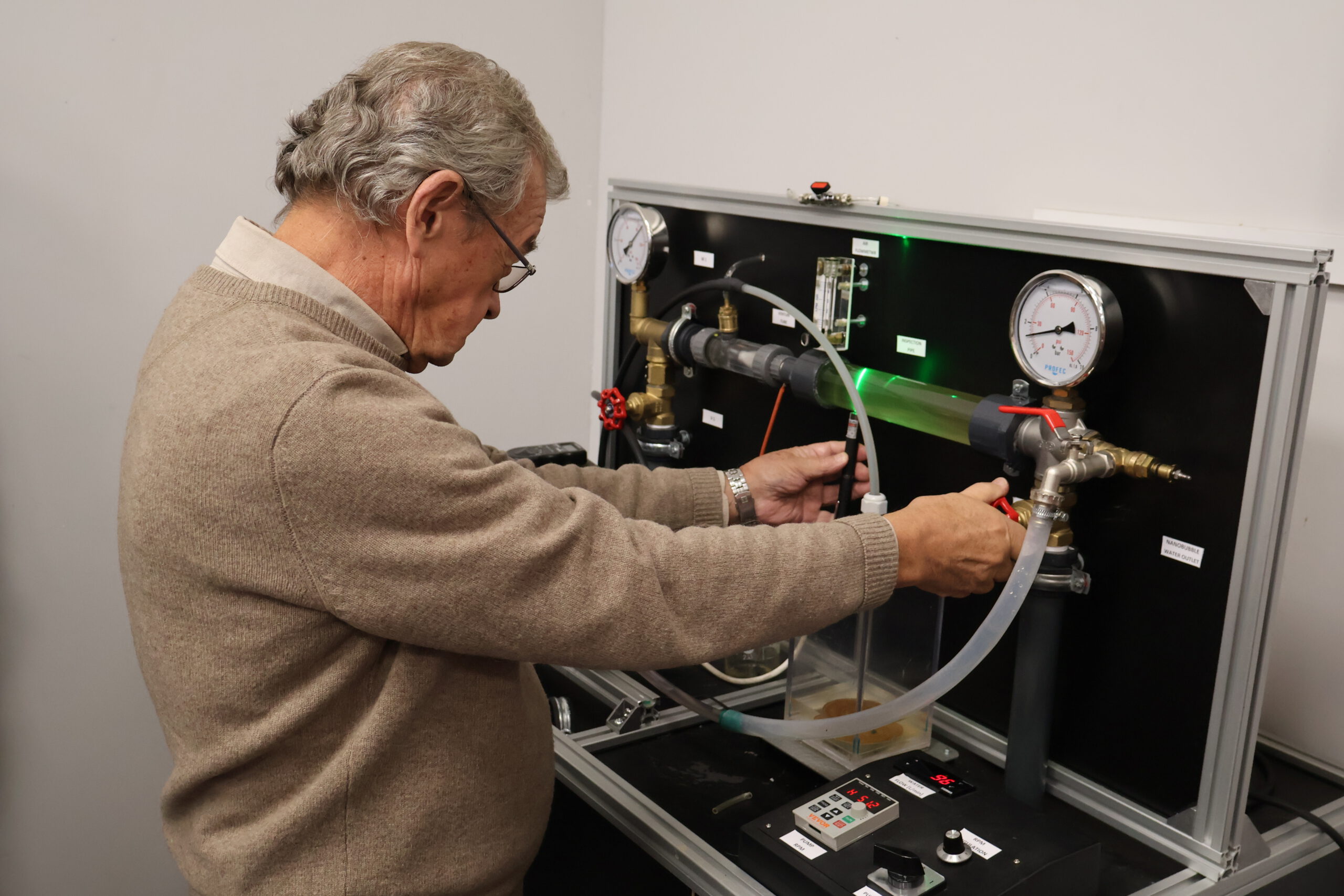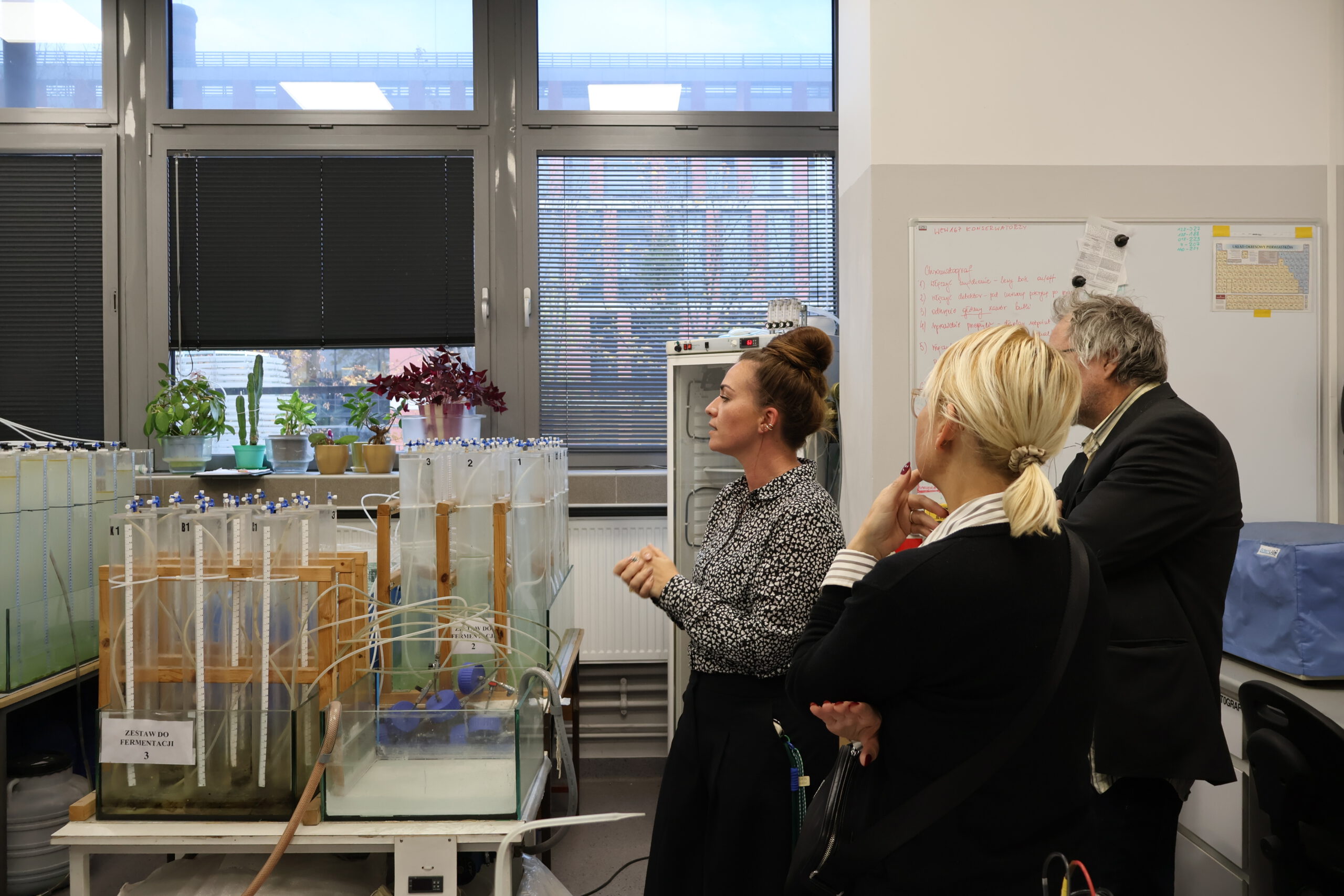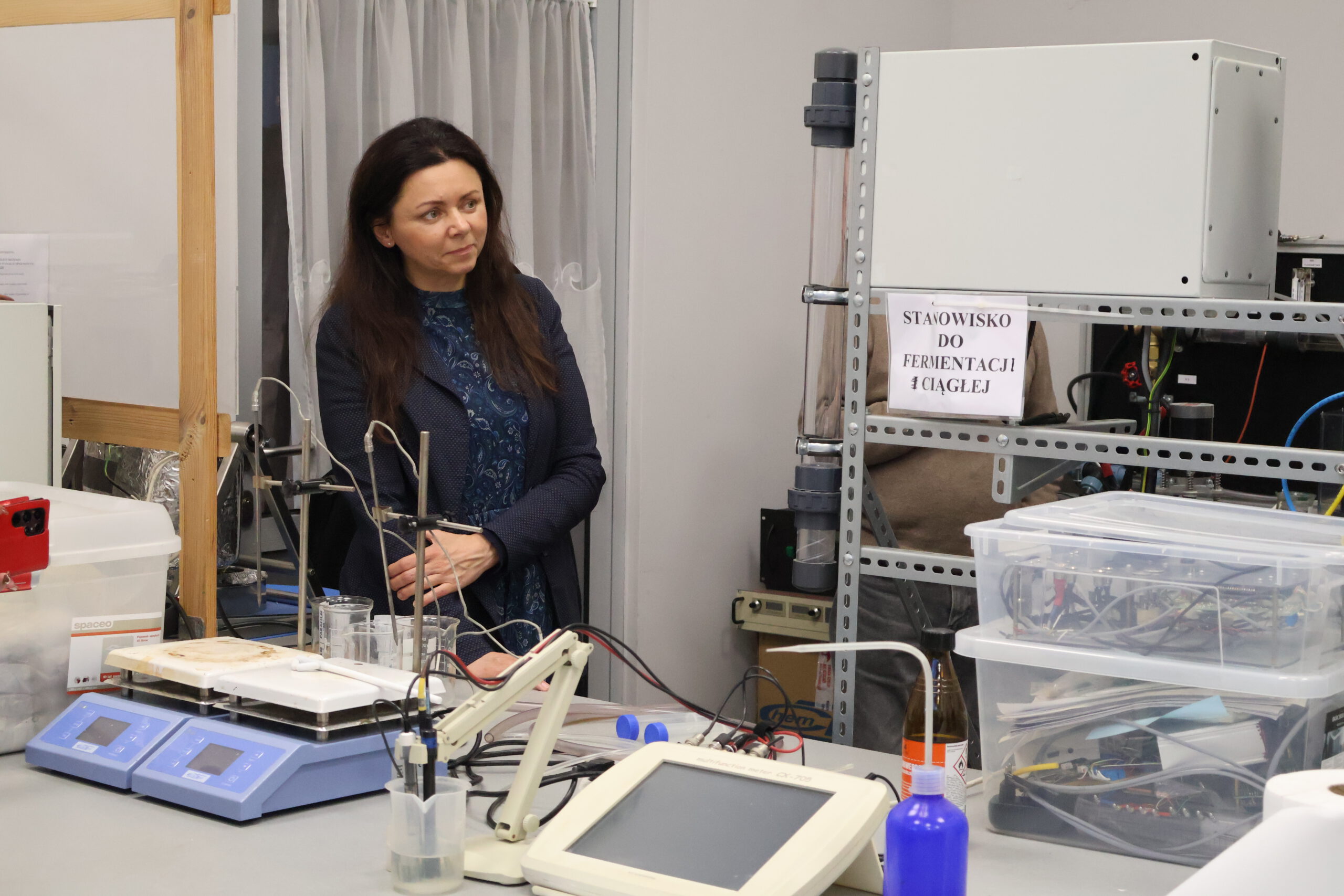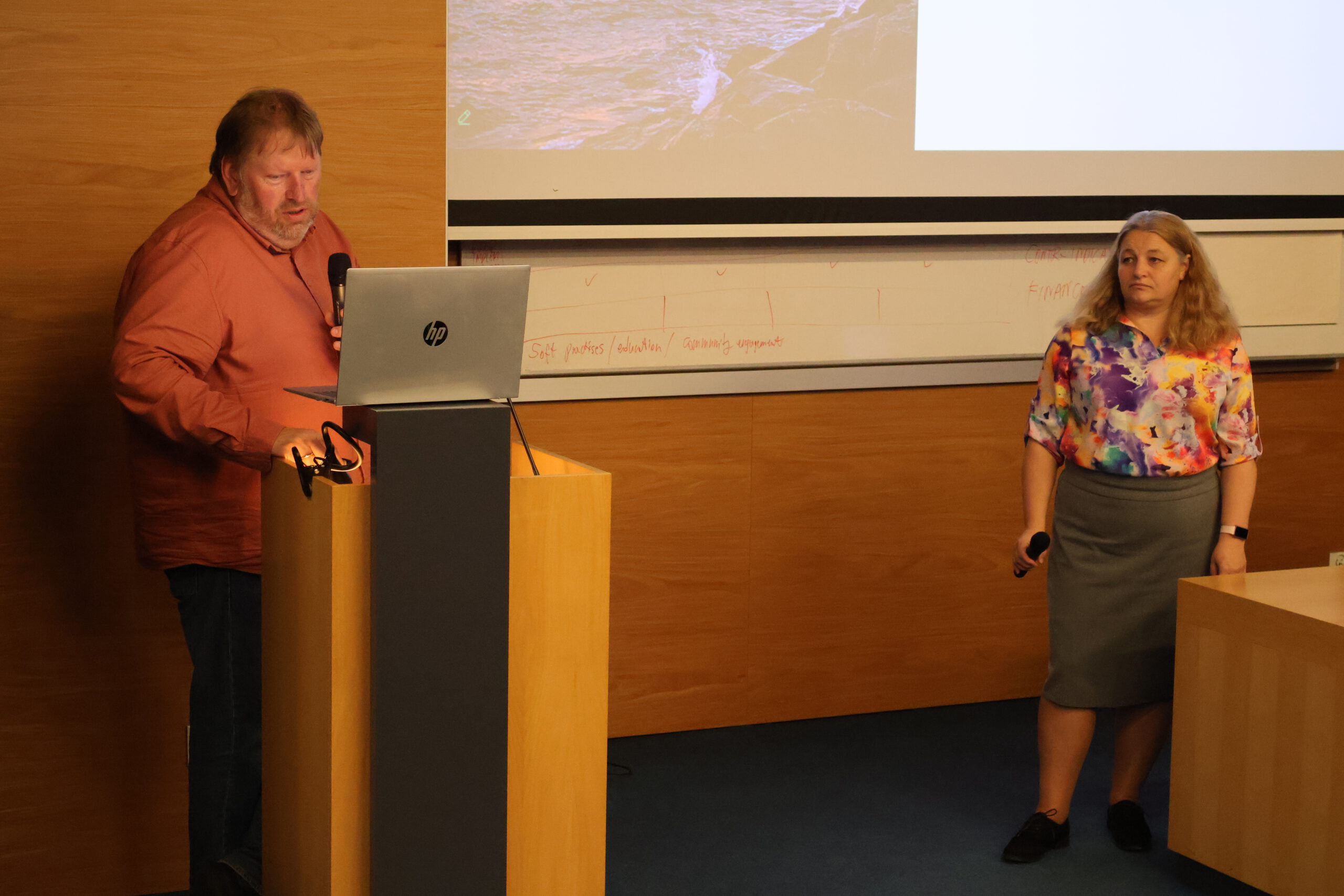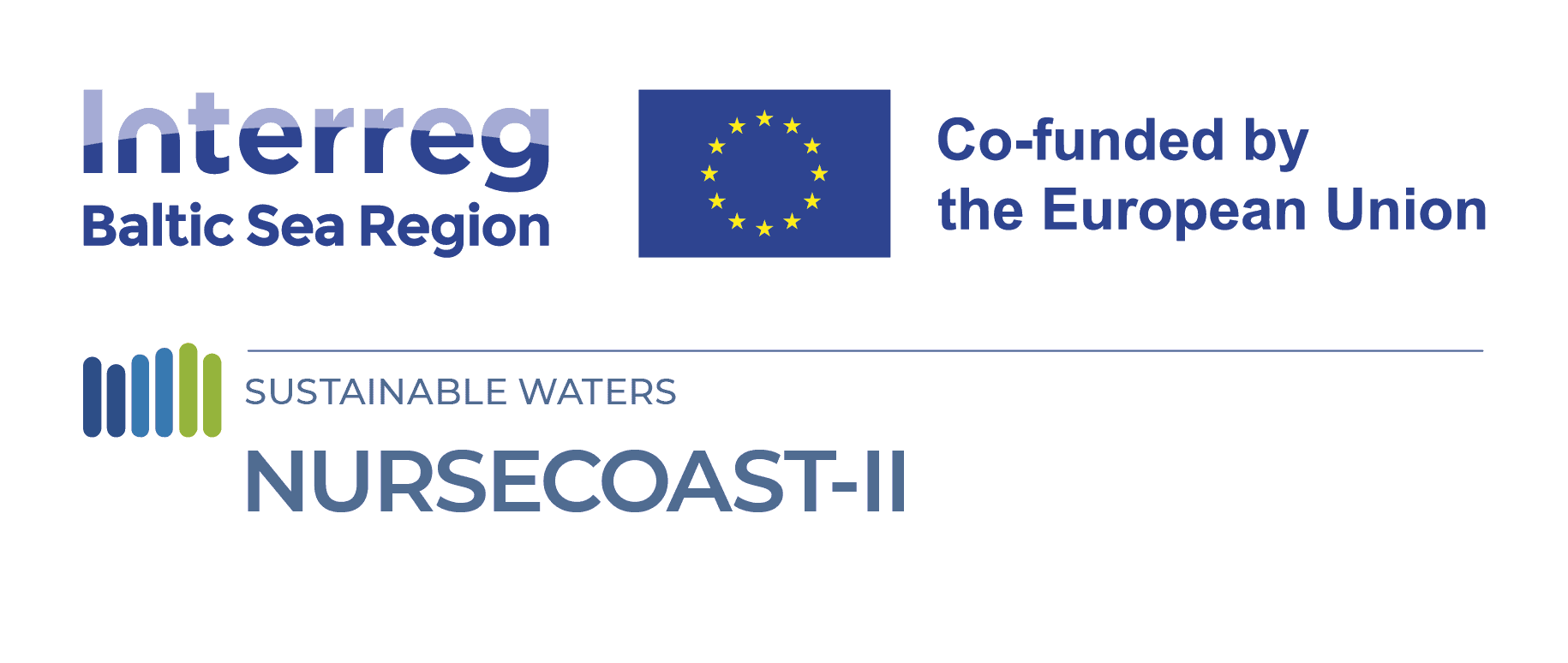
NURSECOAST-II partners meet in Gdańsk to plan the next steps toward resilient coastal communities
31 October 2025
The meeting focused on reviewing results from pilot sites, refining assessment methodologies, and exploring how innovative water treatment and reuse solutions can help make near-coastal and tourist areas more sustainable and climate-resilient.
Innovation, pilots, and practical solutions
The morning sessions centred on pilot development and validation, featuring updates on new technological approaches being tested across the region. Discussions highlighted the potential of nanobubble technology to improve wastewater purification efficiency and the successful trials of treated wastewater reuse for irrigation, demonstrating practical examples of circular water management.
Partners also reviewed the performance of several pilot installations and exchanged lessons learned from implementation in different local contexts. While not all pilots have gone as smoothly as planned, some sites have faced legislation-related or technical and equipment-related challenges – a normal part of testing new methods in real-world conditions. These experiences are valuable for learning, evaluating, and improving the technologies and approaches that NURSECOAST-II aims to promote.
Environmental and risk assessment
In the early afternoon, the discussions focused on environmental assessment and risk analysis which are also key elements of ensuring that the project’s solutions are safe, effective, and scalable. The consortium reviewed progress on environmental impact and life cycle assessments, as well as tools for estimating nutrient reduction potential in coastal areas.
The discussion focused on how these analytical methods can support municipalities in evaluating the environmental benefits and risks of adopting new wastewater treatment technologies.
Communication, business models, and policy
The final sessions of the day explored how to translate technical results into action. Partners presented ongoing work on awareness-raising activities and training materials designed to promote water reuse and nature-based solutions among local stakeholders.
The meeting also addressed ways to make innovative wastewater treatment technologies more accessible to municipalities – through improved information about technology suppliers, funding opportunities, and sustainable business models. Work also continues on developing policy guidelines to support decision-makers in integrating water reuse and circular economy principles into local planning and investment frameworks.
The team also had the opportunity to visit the IMP PAN laboratories, where ongoing nanobubble experiments, fermentation and waste valorization studies and related research including laser physics activities were presented. Following a full day of discussions and collaboration, participants took part in a walk through Gdańsk’s historic Old Town, providing a pleasant conclusion to the meeting and an opportunity to exchange reflections on the day’s work and future cooperation within NURSECOAST-II.
